ProBlogger - Latest Posts |
| 12 Traits of Successful Bloggers Posted: 19 May 2008 02:33 PM CDT I was just doing an interview on an Aussie radio station and was asked to name some traits of successful bloggers. My initial reaction was to giggle - because no two successful bloggers are the same - however as I began to answer I realized that there are some common traits among bloggers who gain popularity. Here’s a list, presented in no particular order, of some of the traits of successful bloggers that I observe: 1. Creative and Playful
Image by Yelnoc “There is no doubt that creativity is the most important human resource of all. Without creativity, there would be no progress, and we would be forever repeating the same patterns.” - Edward de Bono 2. Innovative
"Innovation distinguishes between a leader and a follower." - Steve Jobs 3. Connectors
“It’s not what you know but who you know that makes the difference.” - Anonymous 4. Community Enablers
"Call it a clan, call it a network, call it a tribe, call it a family: Whatever you call it, whoever you are, you need one." - Jane Howard 5. Information Mavens
Image by dsevilla “What sets Mavens apart, though, is not so much what they know but how they pass it along. The fact that Mavens want to help, for no other reason than because they like to help, turns out to be an awfully effective way of getting someone’s attention.” Malcolm Gladwell (Tipping Point). 6. Communicators
"The two words ‘Information’ and ‘Communication’ are often used interchangeably, but they signify quite different things. Information is giving out; communication is getting through." - Sydney J. Harris 7. Interest
"There are two levers for moving men: interest and fear." - Napoleon Bonaparte 8. Entrepreneurs
“The entrepreneur in us sees opportunities everywhere we look, but many people see only problems everywhere they look. The entrepreneur in us is more concerned with discriminating between opportunities than he or she is with failing to see the opportunities.” - Michael Gerber 9. Originality
“Eveyone is a genius at least once a year. A real genius has his original ideas closer together.” - Georg C. Lichtenberg 10. Perseverance
"If at first you don’t succeed, get a bigger hammer." - Alan Lewis 11. Focus
"Take up one idea. Make that one idea your life - think of it, dream of it, live on that idea. Let the brain, muscles, nerves, every part of your body, be full of that idea, and just leave every other idea alone. This is the way to success.” - Swami Vivekananda 12. Curiosity
"We keep moving forward, opening new doors, and doing new things, because we’re curious and curiosity keeps leading us down new paths." - Walt Disney |
| What Are The Unspoken Rules of Social Networks? Posted: 19 May 2008 09:02 AM CDT Bruce Simmons asks:
What are social networking sites?This is an interesting topic, and I feel that we should start with some very basic information. Contrary to what some people might think, social networks were not born online with Friendster and MySpace. Social network, in fact, is a very old term used to describe any social group where individuals and/or organizations form a specific structure with nodes and connections. Here is the Wikipedia definition:
The Internet completely changed the way people used to communicate and interact, so it was a natural step to create virtual social networks, or social networking websites. Back in 1979 Usenet, a global Internet discussion system, was already attempting to accomplish this. Then in 1995 you had perhaps the first online social network as we known them today, ClassMates.com, which the purpose was to allow school mates to connect. What about social bookmarking sites?While websites like Digg and StumbleUpon do have a social factor, I don’t think we can classify them on the same level as MySpace or Friendster. Mainly because they have different scopes: the first two aim to let people share and discover new websites and online stories; the second two aim to let people with similar interests connect online. You could consider Digg and StumbleUpon a sub-category of social networking sites, for example. Social bookmarking sites is what I would call them, but you have many other definitions floating around, including community bookmarking sites and social news aggregators. Centralized vs. Decentralized Social NetworksNow that we have a clear understanding of social networks and social bookmarking sites, let’s get back to the central question. What are the unspoken rules of these websites? When someone can promote his own content directly, and when one should refrain from doing so? In order to draw the line that divides the accepted and unaccepted behaviors, I think that we need to classify those social networking sites under two different groups: centralized social networks and decentralized social networks. Note: That is a classification that I came up with, so I am not sure if it has being used in the past or not, and if with the same meaning. Feel free to suggest other interpretations or to disagree with my theory in the comments below. Centralized social networks are those where the actions of the single elements will inevitably affect the whole community. That is, all the actions flow to the center. Digg is an example of a centralized social network. Every time you submit a story, digg or bury a story submitted from another user, ask for votes or try to manipulate the system in your favor, your actions are inevitably affecting the whole community.
That is because all members of Digg use the front page of the different sections to stay updated with the hot stories around the website. The same principle applies to StumbleUpon. The central part of their system is the “Stumble!” button on the toolbar. Virtually all the members use that button to discover new and interesting websites. As a consequence, whenever you give a thumbs up or a thumbs down to a particular story, and whenever you share the stories you liked with friends, you are affecting the experience of all the other members of the community. Twitter, on the other, is a decentralized social network. There is no central or core location where the actions of the single elements flow to. The system allows you to create you own micro communities, and your actions inside those communities will not affect people outside of them.
That is, you can decide who you follow, and other people in turn will decide if they want to follow you back or not. Suppose someone starts using Twitter solely to promote his own website. Users that are not following that person will not even notice what he is doing, and the ones that are following him can simply remove the follow to stop receiving his messages if they find them annoying. Finally, if someone likes to receive the promotional messages about the website of this person, he can keep following him. Now you might ask me: so are all social bookmarking sites like Digg or Reddit centralized, and all standard social networks like MySpace and Facebook decentralized? That is a good rule of thumb, but it is not always the case. Most social bookmarking sites are centralized, including Digg, Reddit, StumbleUpon, Mixx and Propeller. Some, however, are not. Del.icio.us is an example of a decentralized social bookmarking site. Provided you use the service to save your own bookmarks or to share them with friends, the actions of other users will not affect your experience. As for standard social networking sites, I would say that most of them are indeed decentralized. Of course you have people trying to spam and manipulate those websites nonetheless, so the action of abusive users can end up affecting the whole community. But that is the exception and not the rule. ConclusionBy now you should already know the answer to the original question. Whenever we talk about decentralized social networks, you can use them in whatever way you desire (well, excerpt for spamming). You can promote your website, yourself, express your opinions and what not. You will create your own micro community on those sites, and your actions there should not affect the other members, so they will hardly care. Consider Twitter again. There are people who use it as a micro blogging tool. Others use it as an instant messaging utility. Others yet use the tool to promote their websites, and some people are even trying to sell their Twitter accounts on eBay! It is all good though, because each user has the autonomy to decide who he will follow, who will be able to follow him, and what micro communities he will join. As for centralized networks like Digg or StumbleUpon, you will need to play under the rules of the community. Usually these rules will encourage you to be active in the community and to actually help it grow. Self promotion and system manipulation are frowned upon. Practically speaking, can you get away with the occasional submission of your own stories? Yes. Can you use it over and over again solely to promote your own stuff? No. Over to youDo you agree that some social networks are centralized, while others are not? Do you think people should avoid completely promoting their own content, or there are exceptions? Daniel Scocco is the author of Daily Blog Tips. You can stay updated with his blog tips by subscribing to his RSS Feed. |
| You are subscribed to email updates from ProBlogger Blog Tips To stop receiving these emails, you may unsubscribe now. | Email Delivery powered by FeedBurner |
| Inbox too full? | |
| If you prefer to unsubscribe via postal mail, write to: ProBlogger Blog Tips, c/o FeedBurner, 20 W Kinzie, 9th Floor, Chicago IL USA 60610 | |
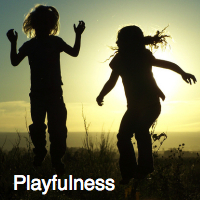
 Often ‘innovative’ is used to describe a blogger’s use of technology - but it goes well beyond this. Innovative bloggers are those that are able to extend and explore their topic in ways that others are not. They are thought leaders and forge into new ground not only in the way that they present in what they say.
Often ‘innovative’ is used to describe a blogger’s use of technology - but it goes well beyond this. Innovative bloggers are those that are able to extend and explore their topic in ways that others are not. They are thought leaders and forge into new ground not only in the way that they present in what they say.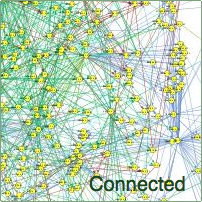 Most successful bloggers that I’ve interacted with have an insatiable desire to connect with as many people as they can. They have an ability to connect not only with their readers but other bloggers and key people in both the online and offline world. Their networks are often far reaching - enabling them to draw on all kinds of relationships when needed.
Most successful bloggers that I’ve interacted with have an insatiable desire to connect with as many people as they can. They have an ability to connect not only with their readers but other bloggers and key people in both the online and offline world. Their networks are often far reaching - enabling them to draw on all kinds of relationships when needed. There are many blogs with great information - but it’s those that are able to draw in and build up a community of passionate and energetic people that often go to the next level. Readers are no longer satisfied just to consume content - they want to participate and belong online. Successful bloggers don’t always actively participate in or lead the community aspect of their blogs but they do have an ability to attract other community builders and to empower them to build a community around the content on the blog.
There are many blogs with great information - but it’s those that are able to draw in and build up a community of passionate and energetic people that often go to the next level. Readers are no longer satisfied just to consume content - they want to participate and belong online. Successful bloggers don’t always actively participate in or lead the community aspect of their blogs but they do have an ability to attract other community builders and to empower them to build a community around the content on the blog.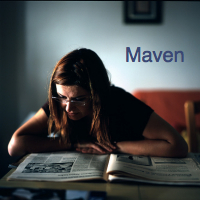
 Some might think that this point is all about bloggers having the ability to write well - but that is only part of being a good communicator. Successful bloggers have a knack of knowing connecting with readers that goes beyond the way they use words. Good communication has more to do with knowing your audience and connecting with their needs and desires. Successful bloggers have the ability to trigger some sort of response in their reader.
Some might think that this point is all about bloggers having the ability to write well - but that is only part of being a good communicator. Successful bloggers have a knack of knowing connecting with readers that goes beyond the way they use words. Good communication has more to do with knowing your audience and connecting with their needs and desires. Successful bloggers have the ability to trigger some sort of response in their reader.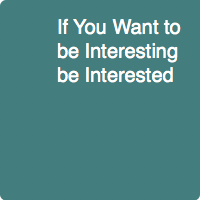 Bloggers know how to be interesting - but being interesting starts with being interested. Most successful bloggers that I’ve met would blog on their chosen topic for free - because they have some kind of passion or interest in it themselves. This energy that they have for their topic shines through and is infectious to others. It’s one of the main reasons that readers are drawn to them.
Bloggers know how to be interesting - but being interesting starts with being interested. Most successful bloggers that I’ve met would blog on their chosen topic for free - because they have some kind of passion or interest in it themselves. This energy that they have for their topic shines through and is infectious to others. It’s one of the main reasons that readers are drawn to them. Successful bloggers are always on the look out for opportunities to go to the next level. They leverage what they currently have to grow something more. They don’t just rely upon others to make their dreams a reality but are self starters and ‘doers’ that go and get what they want.
Successful bloggers are always on the look out for opportunities to go to the next level. They leverage what they currently have to grow something more. They don’t just rely upon others to make their dreams a reality but are self starters and ‘doers’ that go and get what they want. It is difficult to be unique in the blogging space but successful bloggers find ways to make what they do stand out from the crowd. They develop a distinct voice, use media in different ways and develop their own unique spin on life that sets them apart from the rest.
It is difficult to be unique in the blogging space but successful bloggers find ways to make what they do stand out from the crowd. They develop a distinct voice, use media in different ways and develop their own unique spin on life that sets them apart from the rest.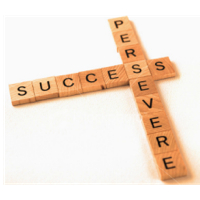 Successful bloggers know that it takes time to grow a blog and look past those initial awkward months (and longer) after a blog is launched to motivate them to persevere. They do know when to give up when something isn’t working but also have an ability to develop their blog’s with focus and discipline and unswerving conviction over the long haul.
Successful bloggers know that it takes time to grow a blog and look past those initial awkward months (and longer) after a blog is launched to motivate them to persevere. They do know when to give up when something isn’t working but also have an ability to develop their blog’s with focus and discipline and unswerving conviction over the long haul. What strikes me about many of the most successful blogs out there is that in a time where there’s an incredible development of new technology happening that many of them don’t allow themselves to get distracted by it. Yes they experiment and play with new ways of delivering content to readers but they don’t become distracted from their core task of producing useful and engaging content for readers. Being able to identify what matters most and sticking to it is so important - particularly in a medium with so many time sucking distractions.
What strikes me about many of the most successful blogs out there is that in a time where there’s an incredible development of new technology happening that many of them don’t allow themselves to get distracted by it. Yes they experiment and play with new ways of delivering content to readers but they don’t become distracted from their core task of producing useful and engaging content for readers. Being able to identify what matters most and sticking to it is so important - particularly in a medium with so many time sucking distractions.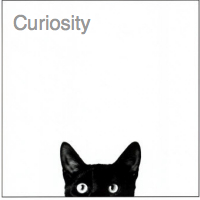 Lastly, one of the traits that I see in many great bloggers is a restlessness and a dissatisfaction with the current state of play in their world/blog/industry. They are not content to sit comfortably but are always exploring, pushing boundaries and experimenting. They are curious people who are always asking ‘what if….?’ - a question that leads to all kinds of discoveries and possibilities that the rest of us could only dream of discovering.
Lastly, one of the traits that I see in many great bloggers is a restlessness and a dissatisfaction with the current state of play in their world/blog/industry. They are not content to sit comfortably but are always exploring, pushing boundaries and experimenting. They are curious people who are always asking ‘what if….?’ - a question that leads to all kinds of discoveries and possibilities that the rest of us could only dream of discovering.

